Birds of prey do pose a problem for gamekeepers, but are we looking at the right culprit, asks Matt Cross

It was a case of “don’t quote me on any of this”, “strictly off the record” and “you never got that from me”. Phone call after phone call no one seemed to want to talk about raptor predation. The gamekeeping organisations were keen, the Game & Wildlife Conservation Trust (GWCT) was helpful, but no individual would put their name to anything.
I phoned, emailed and texted, I even appealed on social media. I had made it very clear that I didn’t want to discuss the tediously controversial issues around grouse and harriers. Instead, I wanted to know what effect buzzards, sparrowhawks, goshawks and tawny owls were having on pheasants and partridges. Everyone seemed to have a view but almost no one was willing to put their name to it.
A former headkeeper was adamant: “They can be a real problem.” A leading scientist sighed and said: “It’s convenient for a keeper to blame something they can’t do anything about.” Neither would go on the record. Unlike the issues around harriers and grouse, the divide over raptor predation of released game birds is within the shooting community. There are those who maintain that raptors are a growing problem and those who claim that “losses are usually insignificant”.
Not only are there strongly held views and an almost wilful lack of communication, but there is also a lack of science.
The anecdotal evidence is pretty damning. In Inverness-shire, where feeding stations have created huge localised populations of red kites, a keeper described them chasing his birds around in the pens until they injured themselves crashing into the wire. Further down the east coast, another told me how, in one night, a tawny owl had killed 10 birds, taking the heads and leaving the bodies.
Denne historien er fra November 29,2017-utgaven av Shooting Times & Country.
Start din 7-dagers gratis prøveperiode på Magzter GOLD for å få tilgang til tusenvis av utvalgte premiumhistorier og 9000+ magasiner og aviser.
Allerede abonnent ? Logg på
Denne historien er fra November 29,2017-utgaven av Shooting Times & Country.
Start din 7-dagers gratis prøveperiode på Magzter GOLD for å få tilgang til tusenvis av utvalgte premiumhistorier og 9000+ magasiner og aviser.
Allerede abonnent? Logg på
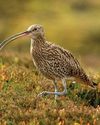
United we stand
Following United Utilities' decision to end grouse shooting on its land, Lindsay Waddell asks what will happen if we ignore our vital moors

Serious matters
An old gamebook prompts a contemplation on punt-gunning
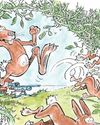
They're not always as easy as they seem
While coneys of the furry variety don't pose a problem for Blue Zulu, he's left frustrated once again by bolting bunnies of the clay sort
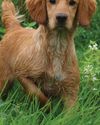
Debutant gundogs
There's lots to think about when it comes to making the decision about when to introduce your dog to shooting
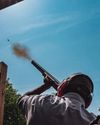
When the going gets rough
Al Gabriel returns to the West London Shooting School to brush up on his rough shooting technique

The Field Guide To British Deer - BDS 60th Anniversary Edition
In this excerpt from the 60th anniversary edition of the BDS's Field Guide To British Deer, Charles Smith-Jones considers the noise they make
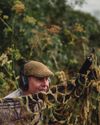
A step too far?
Simon Garnham wonders whether a new dog, a new gun and two different fields in need of protection might have been asking too much for one afternoon's work
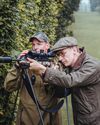
Two bucks before breakfast
A journey from old South London to rural Hertfordshire to stalk muntjac suggests that the two aren't as far detached as they might seem
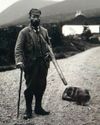
Stalking Diary
Stalkers can be a sentimental bunch, and they often carry a huge attachment to their hill

Gamekeeper
Alan Edwards believes unique, private experiences can help keepers become more competent and passionate custodians of the countryside